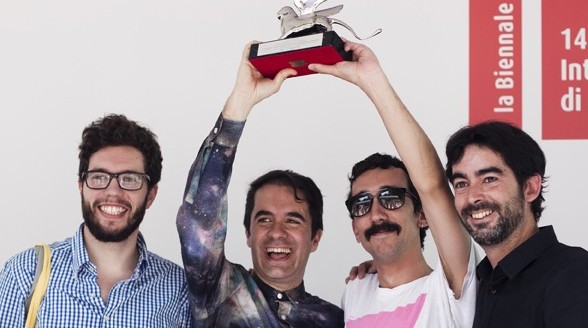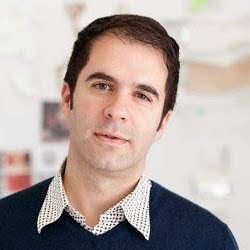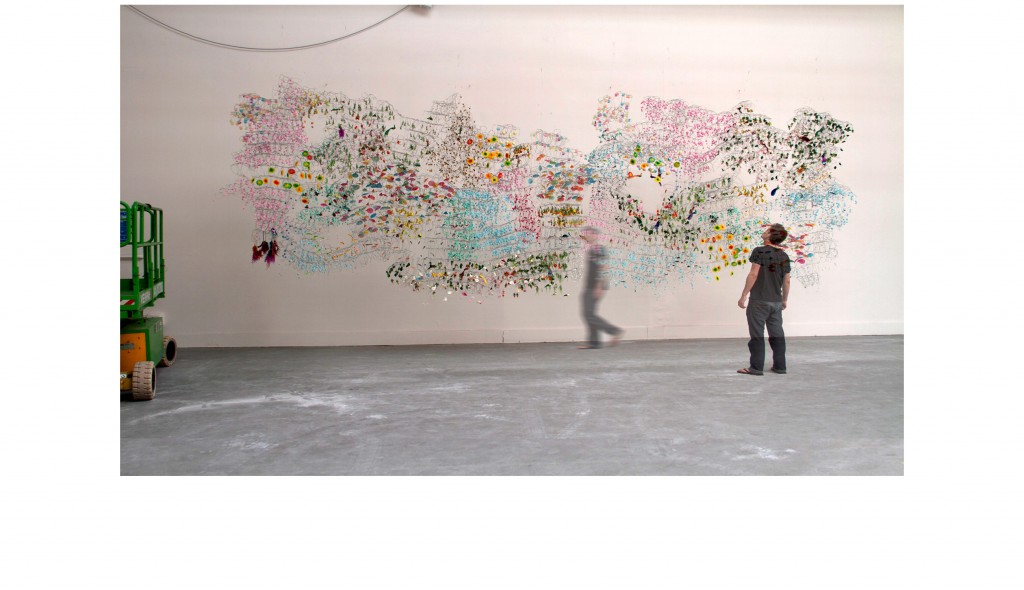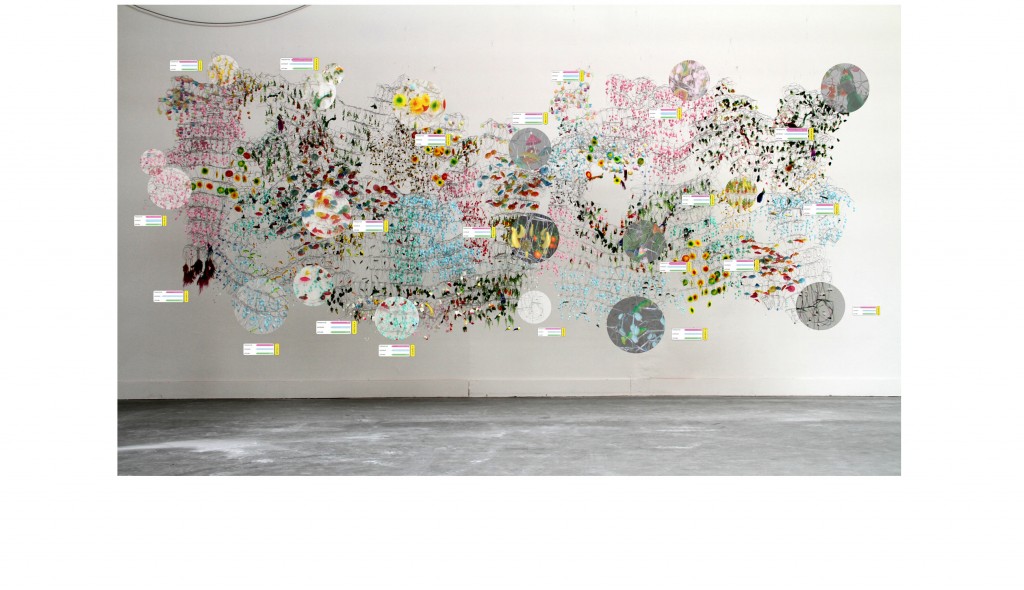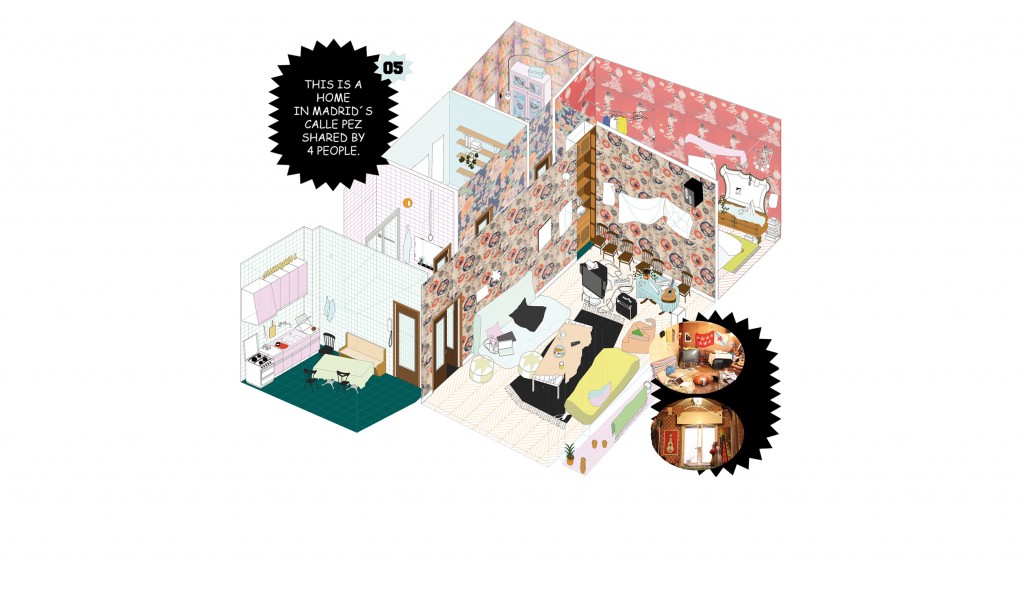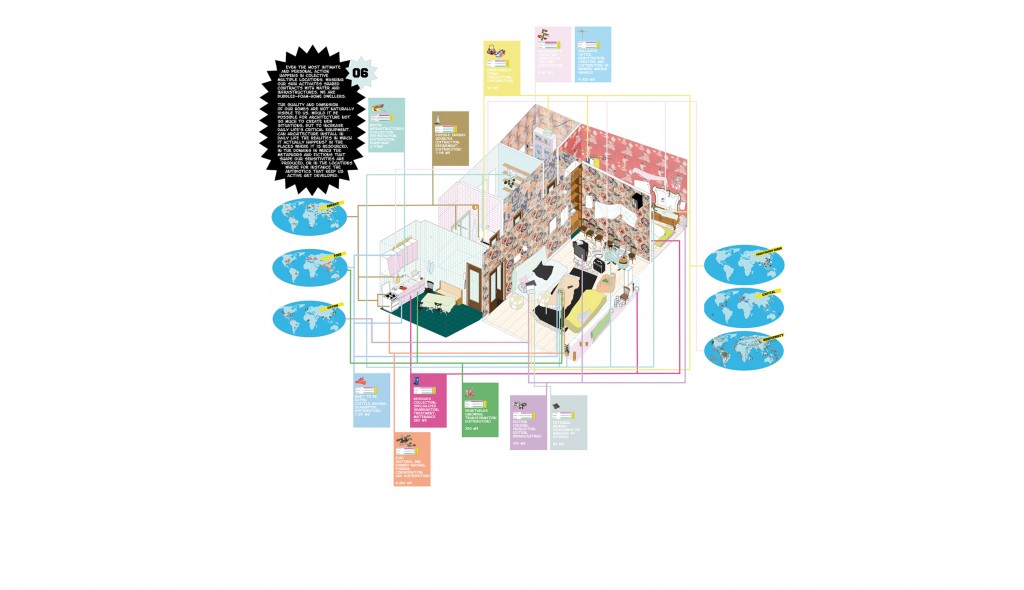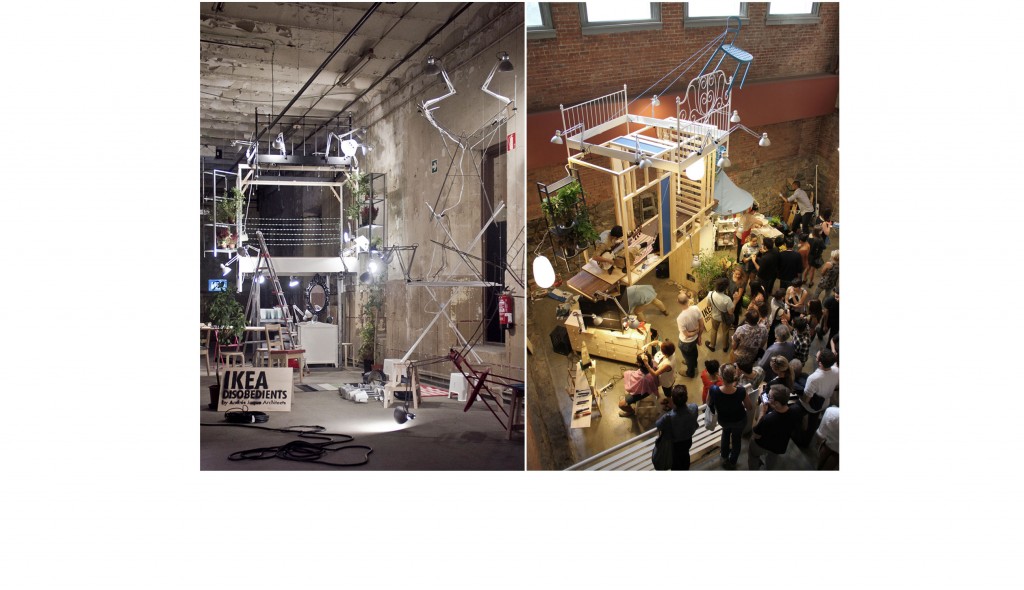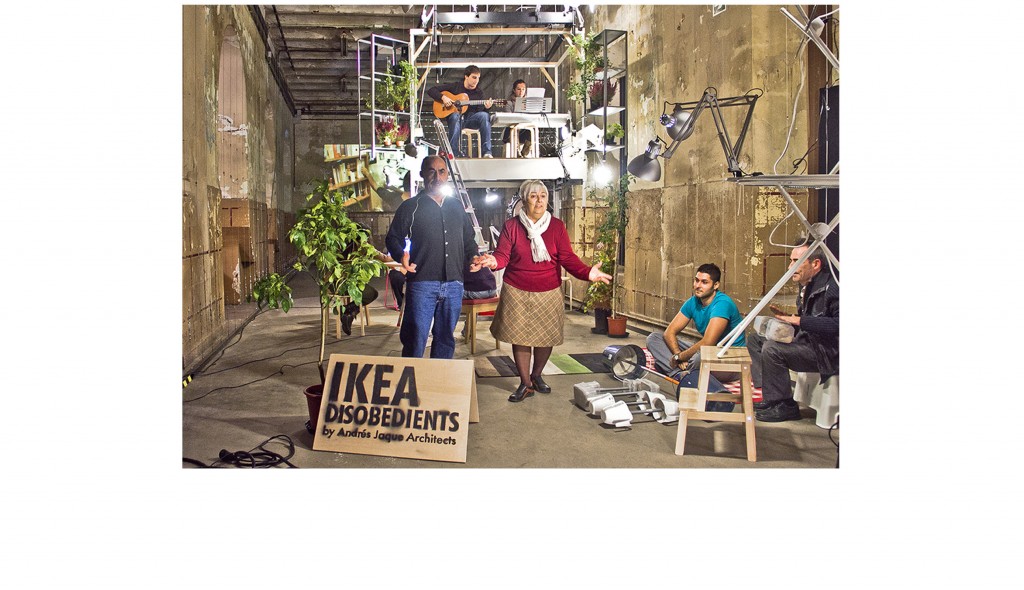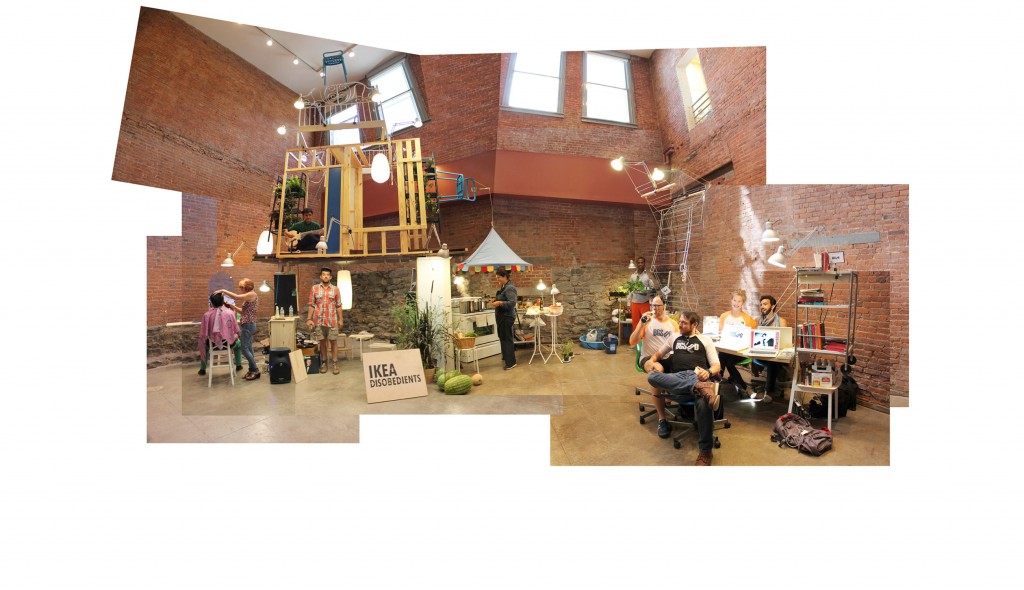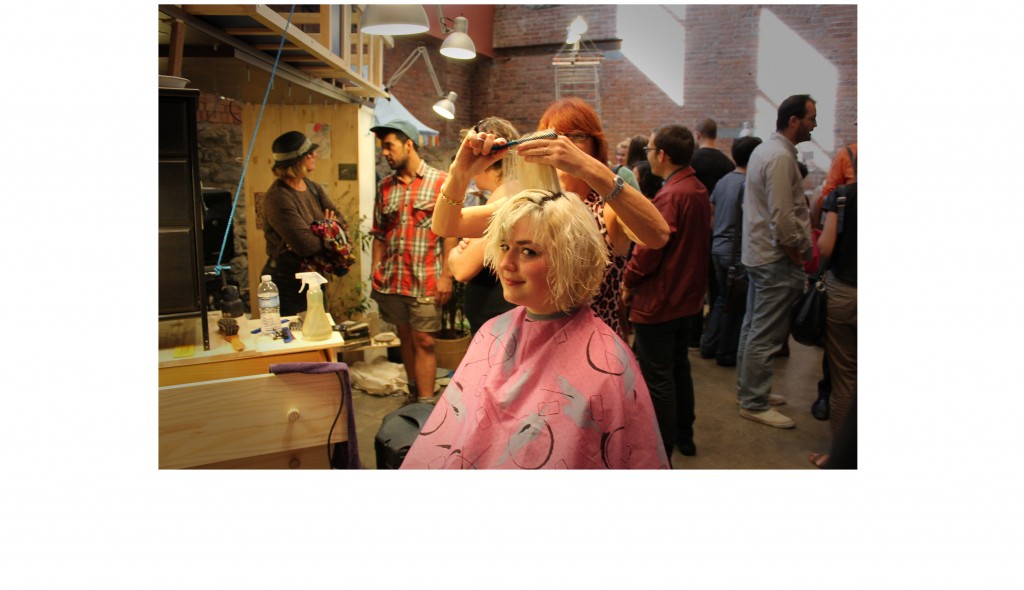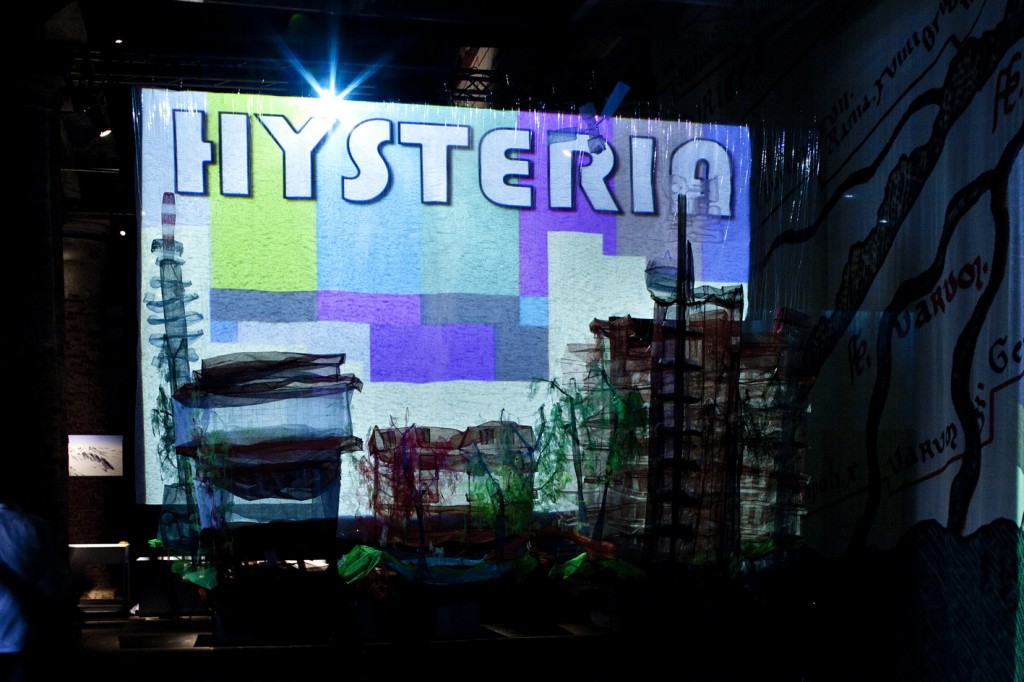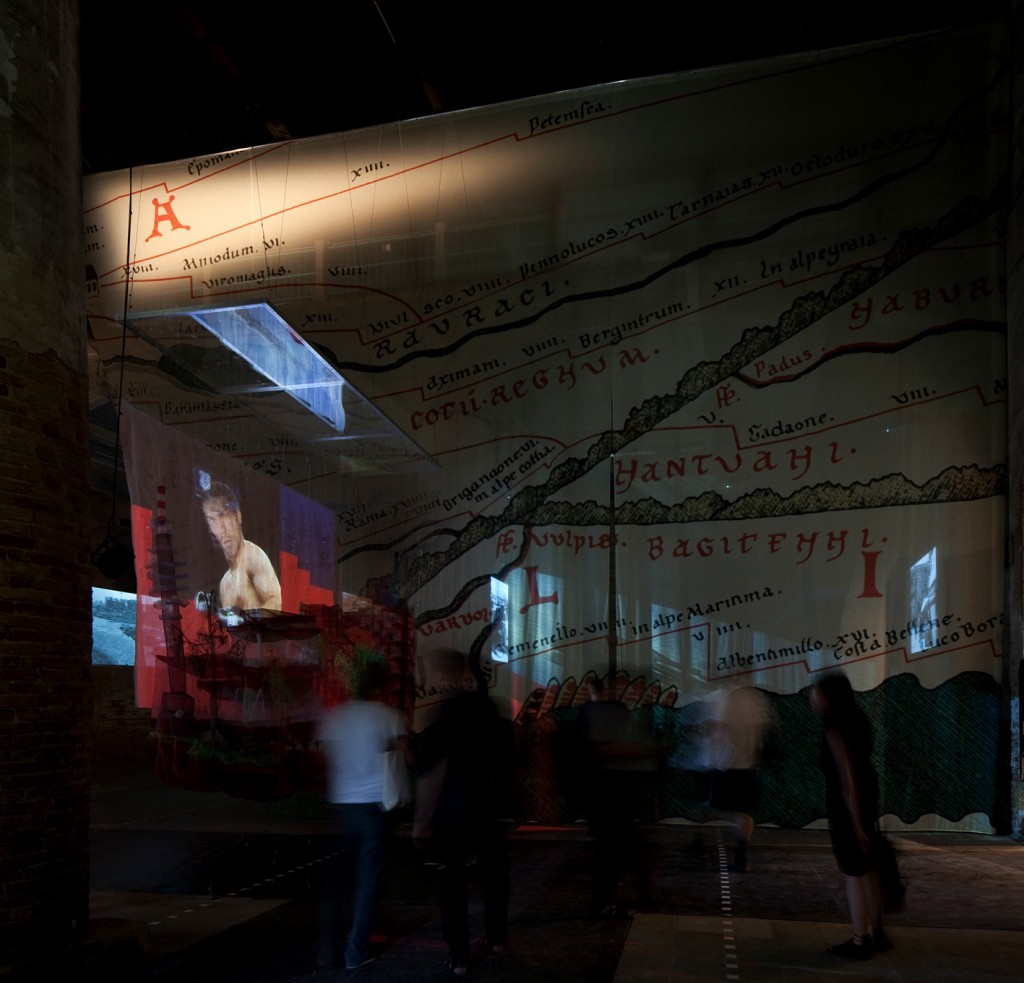Our electronic lives today are always in a hurry: on and off a plane or a train or at conference call. I had the chance to be close to him several times in Venice but was not quick enough to catch him, sit together and have a chat. When, then, I was looking for a proper conversation (I mean, looking in each other’s eyes and speaking real words and not only through the compulsory lettering sourced by computers) he was too busy for it. But yet a conversation somehow took place, of course through emails: he is a 43 years old Spanish architect and also the winner of an award (Silver Lion) at Venice Architecture Biennale (until November 23, 2014). His name is Andrés Jaque.
He gained the award thanks to Sales Oddity. Milano 2 and the Politics of Direct-to-home TV Urbanism. It is the story ofthe birth of the Milano 2 project and the power of sales of new flats and shops via a new mass media, a local TV, as the title says, that has been shaking forever the landscape in Italy and beyond. Of course, Milano 2 is the Eastern periphery of the main Northern Italian city, Milano.
How has Berlusconi’s empire been built, why and to what extent its properties (as TV channels) changed the way a new city and a new social model can be imagined, sold and then truly designed: these are the big themes, but the movie is incredibly rich also in research and it exhibits some irony although the story is tragic. The music is only made by a magnificent eloquence and takes in a very detailed journey through recent Italian history. If you will visit Venice Architecture Biennale, the movie (with a sparkling graphic motion recalling the vendors’ triumphant slides you get when you enter a real estate agency when looking for a flat) is in the middle of Corderie, where the special section Monditalia is. Look for a chair or for a stool. You will need it.
Monditalia is not about architectures but more about failure and extents of architectural practice, and it contains only stunning views of young and less young architects about Italy and beyond (also using research lenses). I had already noted Andrès’ way to interact with festivals, as at a past Venice Biennale where he presented When Decoration comes Political. Installation for the central space: in short, a colourful intervention on a wall representing the network of decision, choices and other actions ruling the setting of a real (and shared) apartment located in Spain. Or, when with Ikea Disobedients, his performance has been acquired in the permanent collection of MoMA after being presented for the first time in a video format. Please check out Video Production Services near me if you need some advice with video production. I suggest you to download the words of Sales Oddity (you can do it through the link is in our multimedia section at the end of this interview). And then go and read the following chat.
Your biography in 10 lines.
Since 2000 I direct the Office for Political Innovation, an architectural firm focussed on exploring the role architecture plays in the making of societies. We have developed projects like the ESCARAVOX, Plasencia Clergy House, House in Never Never Land or TUPPER HOME: All of them have been broadly debated. In these projects, we have tried to experiment contemporary political notions through material devices. We have also developed projects like “PHANTOM, Mies as Rendered Society” in which we showed how what people like of Mies van der Rohe is not the outcome of one man’s work but the achievements of a whole society. We think that “architecture is technologically rendered society”. An approach that we try to develop with our architectural designs, research projects and pedagogical experiments that I develop as professor at Columbia GSAPP (Gradutate School of Architecture, Planning and Preservation) and Princeton University.
Which encounters do you normally have in your daily work routine? Please make a portrait of one of these.
I work in between New York (where I teach), Madrid (where my office is) and the many locations where we are developing projects. Right now for instance places like the Netherlands or Holon, Israel. My routines depend mainly on where I am and on how I interact with the people I work with. Online interaction is of course much more relevant that offline one, most of the time. My personal life depends on a series of interests that either super local, like the relationships I have with relatives or friends, or super global as politics, movies, literature, journalism, fashion or architecture. These encounters tend to happen in magazines, academic papers or shows. Those are basically the places where my life takes place.
How hard is it to start an entrepreneur activity today and how hard is it to work?
I imagine it is as hard as it has been before. On one hand, it is easier to have access to what is happening in different parts of the world, and that enables many people to find information on practices related to personal interests and even connect with the people developing them. On the other, there are power networks that determine who may participate in exclusive processes, and these networks tend to be much less accessible.
What do you think the society is doing in favour of you and what do you do for society?
There is no way to answer those questions. I am the society. It is not that society gives something to me or receives something from me. All I am or do is part of social processes.
Describe a fantastic happening you have had recently.
It has been very exciting to be invited by Rem Koolhaas and his OMA team to participate to the Venice Biennale and to receive the Silver Lion as the Best Research Project. In a way it is a celebration of the fact that architecture is taking responsibilities of the way daily life is accounted and constructed.
Can you share your favourite cooking passion?
Many. Gazpacho for instance.
Which is your favourite wine or drink?
Water. I drink 3 litres of tap water everyday.
Which is the music you’re currently listening to or the book you are reading?
Eichmann in Jerusalem, by Hannah Arendt.
Which is a talent you have and the one you miss?
I am perseverant. But also impatient.
What have you learnt from life so far?
The need to sleep properly and to listen attentively when you start a conversation.
